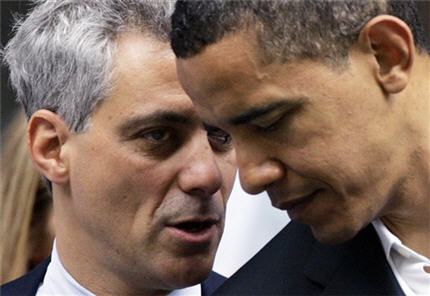Still processing Andrew Huszar’s remarkable Confessions of a Quantitative Easer, which appeared on the Wall Street Journal’s op-ed page on Monday.
This, while BOTH parties insist “we’re broke” (Obama’s very words).
We’re broke, but the Fed can create $4 trillion to loan to the banks. Oh, I see. In return the nation got very little, but for the banks it was a windfall.
Despite the Fed’s rhetoric, my program wasn’t helping to make credit any more accessible for the average American. The banks were only issuing fewer and fewer loans. More insidiously, whatever credit they were extending wasn’t getting much cheaper. QE may have been driving down the wholesale cost for banks to make loans, but Wall Street was pocketing most of the extra cash.
Here is a naive question: If the government can print $4 trillion to give to banks, to very little positive effect for the country, why can’t it print even a fraction of that amount to finance massive public works to make need infrastructure repairs, make education more affordable (or better yet, free), and convert our energy economy to one that is sustainable?
Hell,giving every American a few thousand bucks would be a much more effective stimulus than what the Fed has done.
And don’t forget that the QE program rewards the very entities that created the crisis.
Having racked up hundreds of billions of dollars in opaque Fed subsidies, U.S. banks have seen their collective stock price triple since March 2009. The biggest ones have only become more of a cartel: 0.2% of them now control more than 70% of the U.S. bank assets.
As for the rest of America, good luck. Because QE was relentlessly pumping money into the financial markets during the past five years, it killed the urgency for Washington to confront a real crisis: that of a structurally unsound U.S. economy. Yes, those financial markets have rallied spectacularly, breathing much-needed life back into 401(k)s, but for how long? Experts like Larry Fink at the BlackRock investment firm are suggesting that conditions are again “bubble-like.” Meanwhile, the country remains overly dependent on Wall Street to drive economic growth.
Even when acknowledging QE’s shortcomings, Chairman Bernanke argues that some action by the Fed is better than none (a position that his likely successor, Fed Vice Chairwoman Janet Yellen, also embraces). The implication is that the Fed is dutifully compensating for the rest of Washington’s dysfunction. But the Fed is at the center of that dysfunction. Case in point: It has allowed QE to become Wall Street’s new “too big to fail” policy.

